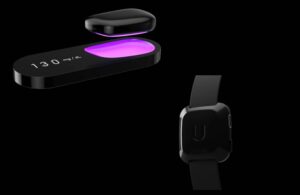
Seattle-based Know Labs develops its proprietary Bio-RFID technology. It uses spectroscopy to direct electromagnetic energy through a substance or material to capture a unique molecular signature. This technology integrates into wearable, mobile or bench-top form factors.
Know Labs developed the first application of Bio-RFID as a non-invasive glucose monitor.
The company plans to present the results of its proof-of-principle study at the American Physiological Society (APS) Summit this week. It conducted the study in collaboration with Mayo Clinic. Data demonstrated the accuracy of Bio-RFID technology in quantifying different analytes in vitro. The technology proved 100% accuracy in its tests.
“Proof-of-principle studies are critical in demonstrating Bio-RFID’s accuracy for non-invasive methods of medical diagnostics. This was an essential step toward achieving our goal of delivering the first FDA-cleared, truly non-invasive glucose monitoring device to the market,” said Ron Erickson, CEO and chair of Know Labs. “To put this into real-world context: imagine being able to continuously and accurately measure different aspects of your health on a molecular level using a pocket-sized (or smaller) sensor instead of a finger prick or a CGM probe.”
About the latest data from Know Labs
Know Labs conducted the study at Mayo Clinic in Rochester, Minnesota, in March 2021. It included five experiments designed to demonstrate the ability of the sensor. These experiments observed its ability to non-invasively quantify concentrations of solutions. The company used a randomized, double-blind trial design.
For each of the five experiments, 100% of solutions in the test data were correctly identified. Bio-RFID detected concentrations as low as 2000 parts per million. That’s equivalent to accurately measuring the difference of 0.7ml of water dropped into a 12oz can of soda, Know Labs says.
Evidence suggested the ability to detect much smaller concentration differences, too, the company added.
“Market pressures like rising healthcare costs and the rapid increase in remote patient monitoring and care delivery are driving the need for affordable, accurate and non-invasive continuous measures of blood analytes,” said Dr. James Anderson, chief medical officer at Know Labs. “What we are describing here is truly ground-breaking. This novel application of the Bio-RFID technology to accurately detect and quantify specific molecules in liquid provides strong support for non-invasive monitoring of physiologically and medically relevant analytes in the human body.”

